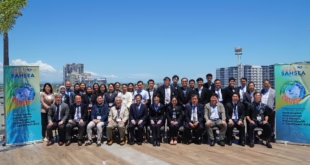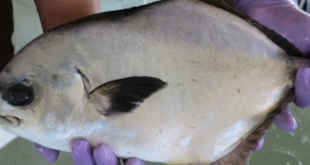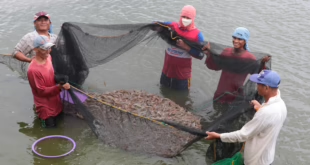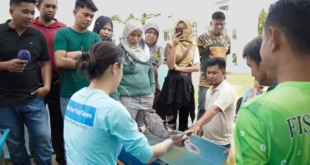
“It is very important for AQD to set its medium-term development (2012-2016) plans,” noted AQD Chief Dr. Felix Ayson during AQD’s Review and planning meeting held 24-26 September at its main station in Tigbauan, Iloilo, Philippines. “There would be no threat to AQD’s existence in the future if we can contribute to the food security and livelihood programs of SEAFDEC member-countries.”
In addition to 52 senior AQD staff, in attendance were three officials from DA-BFAR and DOST-PCAARRD, the two government institutions that AQD closely work with in the host country.
AQD program leaders presented the accomplishments of AQD’s thematic programs and moderated the workshops that come up with the plans for 2013 to 2016. The rest of AQD’s programs and activities were presented as well: GOJ-TF funded projects; technical assistance mechanisms for entrepreneurs and communities; training and information; and administration and finance. Some of the concerns at the meeting, and which would be included in AQD’s to-do list, are: (1) impact assessment of AQD programs and activities; (2) documentation of success stories; and (3) strengthening collaboration with funding agencies.
DA-BFAR and DOST-PCAARRD also contributed to the discussions. Mr. Nelson Lopez, BFAR’s chief of inland fisheries & aquaculture division, introduced their “lying-in concept” or breeding facilities for marine species (such as snapper, rabbitfish, and milkfish) and their national aquasilviculture program. AQD could provide technical assistance especially in the former since this entails the technology for multi-species marine fish hatchery that AQD is noted for. Dr. Jonathan Dickson, also of BFAR and the SEAFDEC National Coordinator for the Philippines, emphasized that enhancing collaboration between AQD and BFAR would augur well for the country. He also reiterated that AQD needs to “justify the costs-and-benefits of the programs that will be implemented and to give valuation to all activities.”
PCAARRD executive director Dr. Cesario Pagdilao, on the other hand, highlighted the collaborative projects of DOST and AQD in shrimp, milkfish, mud crab, and seaweeds. Likewise, he presented their “smart aquaculture concept” which has a component on developing databases (eg. environment parameters vis-à-vis culture conditions) that can easily be used by fishfarmers. AQD could support this project since it has almost 40 years of R&D on economically important commodities. He also suggested that AQD “must consider the market value of each commodity in planning research projects to ensure the benefit to stakeholders”.









 SEAFDEC/AQD Southeast Asian Fisheries Development Center | Aquaculture Department
SEAFDEC/AQD Southeast Asian Fisheries Development Center | Aquaculture Department



